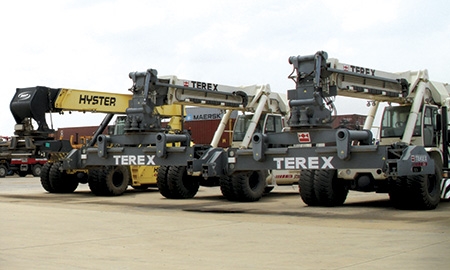When Angola made a fresh start after its devastating civil war, it was faced with a country in ruins and infrastructure destroyed.
Being dependent on imports to survive, nowhere was the task of reconstruction more urgent than in the logistics and transport sector, where ports had suffered severe damage and the road network and rail system had virtually ceased to function.
Development of Angola’s major natural resource, its hydrocarbons reserves, to generate income to pay for reconstruction also depended on giving priority to investing in the country’s ports and this was the action wisely taken by the government.
It was carried out through a pragmatic strategy combining state investment and private sector initiatives, complementing one another to ensure the building of a strong logistics backbone to provide an invaluable contribution to Angola’s achievement of a growth rate exceeding even that of China in the first decade of the century.
Multiterminais and Multiparques has responded to the challenge and is now one of the key players in Angola’s logistics sector, with its concession to run Luanda’s general cargo port now extended to 2045. Leonel da Rocha Pinto, Director-General of the group, explains that “investment in terms of equipment but also in technology and in human resources has been key to our development” and that “we had to carry out this investment to develop the infrastructure that was lacking”.
The initial investment of $20 million has increased to $75 million as the group has expanded the scope of its initiatives, placing Multiterminais and Multiparques, in Mr. da Rocha Pinto’s words, “at the very heart of trade and commerce in Angola for the foreseeable future”.
Mr. da Rocha Pinto also heads up the management committee of LIDE, an organization of private-sector business leaders in Angola, and so right from the start the group had a clear vision of harnessing the dynamism of private enterprise to create and operate efficiently a truly integrated logistics platform with investments both within and beyond the port itself and, in the longer term, beyond the country itself.
Besides upgrading the port terminal, a number of giant silos were built to handle grain imports, cold storage facilities were constructed and cold storage trailers bought to handle frozen food imports, both of these investments helping to transform the food distribution business in the country. As Mr. da Rocha Pinto says, “the port will become an agent of change and our cargo terminal will contribute to that”.
Being dependent on imports to survive, nowhere was the task of reconstruction more urgent than in the logistics and transport sector.
-------------------------------
Multiterminais and Multiparques is a fine example of private-sector initiative revitalizing an economic sector critical to the achievement of national goals.
|
The Port of Luanda suffers from an inherent lack of space to expand operations and this had led to severe delays in clearing goods through the port and to large numbers of vessels being held in a queue before being able to dock and unload.
The solution of Multiterminais and Multiparques to this seemingly intractable problem was to invest about $70 million to create a dry port at Viana, about 15 miles inland, thus clearing them out of the group’s port terminal and relieving congestion.
The move also reduced transportation and storage costs and, of course, the cost to the customer and consumer, Mr. da Rocha Pinto adding that “this is the kind of way we contribute to our local economy”.
Concurrent with this development, a dedicated new rail line takes goods direct from the port terminal to Viana, while the group has also invested in state-of-the-art tracking technology, providing a linked and integrated process offering cargo clearance within 24 hours. The service even extends to pre-clearance of imports so that, as Mr. da Rocha Pinto says, “when the cargo arrives, all that’s needed is a stamp, everything else is already done electronically”, adding that the group aims to emulate the efficiency of Hong Kong Port and that “for technology-related services I went to the United States and to Hong Kong to get the best tracking system”.
He looks forward to working closer with American suppliers, stating that “the United States is very good at logistics, as I have seen in Baltimore and New York, and we could gain from their experience”.
Besides continued investment in enhancing the efficiency and effectiveness of the port’s operations, the group’s plans within Angola center on further integration into the national intermodal logistics strategy, something that will be dependent on the rehabilitation and expansion of the country’s rail system, itself a national priority. This will enable the group to switch from using its fleet of trucks on a problematic road network to moving goods faster and cheaper by rail.
Mr. da Rocha Pinto states that “we are sharing our vision with the government and we have their support”. Another key aim of the group is to continue investing in people skill’s, schooling staff in technology applications and enriching both their personal capabilities and the contribution they can make to the company.
Expansion outside Angola is also on the cards with the group’s ambition being to turn Luanda into Africa’s leading trans-shipment hub.
Multiterminais and Multiparques is a fine example of private-sector initiative revitalizing an economic sector critical to the achievement of national goals. As Mr. da Rocha Pinto sums up, “we were always looking at a long-term business vision, we were always in front of other players in speed and efficiency and so importers preferred us”.

0 COMMENTS